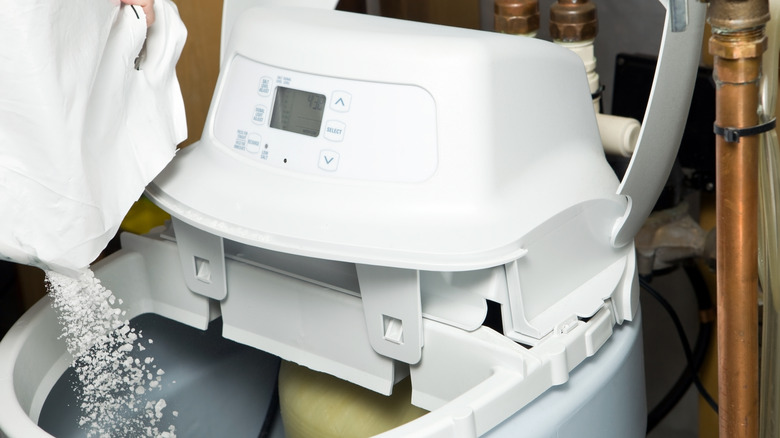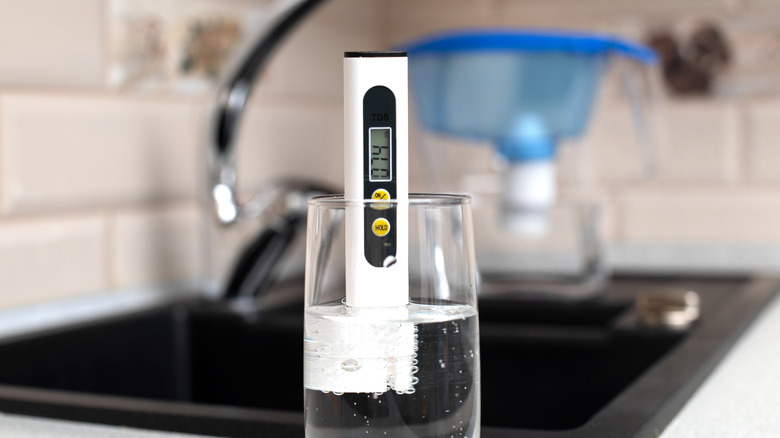How To Easily Determine What Size Water Softener You Need For Your Home
We may receive a commission on purchases made from links.
A shower should leave you feeling fresh and clean, but if you've ever bathed with hard water, you know that's not always the case. It can make your skin feel slimy and irritated and your hair dull, or prone to dryness. Hard water can also cause issues within your home, leaving toilet bowls stained, pipes clogged, and water spots on clean dishes. To easily determine what size water softener you need for your home, you will take your water hardness and multiply it by your daily water use.
But what exactly is "hard" water? In simple terms, hard water has higher amounts of minerals, mainly calcium and magnesium, that are dissolved in the water. Water hardness is measured in grains per gallon. There are a variety of ways you can test it, including with an inexpensive home test from Amazon. Hard water is common in groundwater, which is the main source of water for more than a third of Americans. The good news is that it's easy to mitigate the problems caused by hard water with a water softener.
Most water softeners work through a process called ion exchange. This occurs when hard water enters the softener and passes through resin beads, which exchange the calcium and magnesium for sodium, allowing only softened water to flow out of the system.
Which water softener is right for you
Remember that to calculate the right size softener for your home, you will multiply your water hardness by your daily water use. Water use can be determined by checking your water bill, or you can estimate anywhere between 80 and 100 gallons per person, per day. Once you have that number, multiply it by seven, as water softeners regenerate once per week. For example, if your water hardness is 10 grains per gallon and your household uses 300 gallons per day, your calculation would be 10 x 300 x 7 = 21,000.
When in doubt, always size up. Some experts recommend purchasing a softener that exceeds your requirements by 20 to 30% to account for any discrepancies. A water softener that is too small won't work effectively and its lifespan will be shortened. On the other hand, a water softener that's too large for your property will regenerate less frequently, potentially allowing bacteria to grow. Selecting the correct size ensures optimal performance and extends the softener's lifespan, which should be roughly 10 to 15 years.

